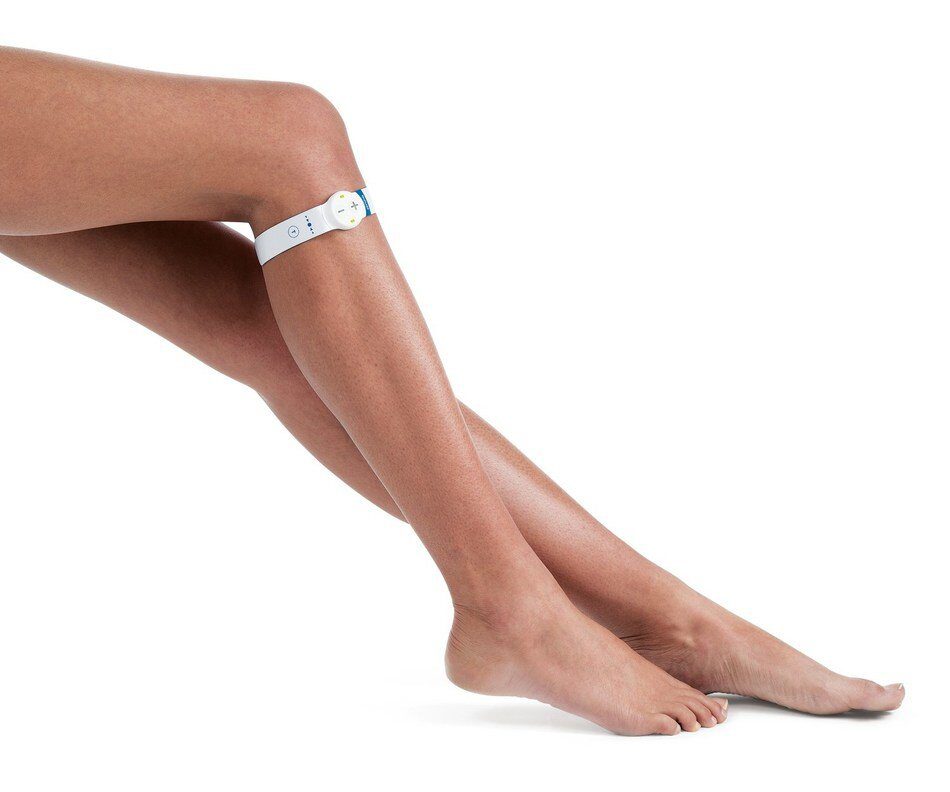January 6, 2021
Sky Medical Technology Ltd today announced that Luton and Dunstable University Hospital are the first NHS hospital in the South East to deploy the innovative geko device for VTE prevention in immobile acute stroke patients who cannot be prescribed the current standard of care.
Sky Medical Technology reminds us that the current standard of care for VTE prevention recommends a boot-like cuff that compresses the legs to move blood, called Intermittent Pneumatic Compression (IPC), a mechanical treatment. IPC, however, is not suitable for all patients due to vascular disease, fragile skin, reaction to the cuff materials, and patient intolerance. This results in a number of patients for whom there is currently no mechanical treatment for VTE prevention.
In an effort to address this unmet need, Luton and Dunstable University Hospital completed a clinical audit of 320 patients, prescribing the geko™ device to those patients who were not suitable for IPC treatment. The geko device is a watch-sized device that sticks to the leg to increase blood flow, via painless electrical pulses, at a rate equal to 60%[1] of walking without a patient having to move.
The audit results showed a 17% unmet need in all mechanical prophylaxis prescriptions when the geko™ device was on service and reported the need for an alternative mechanical prophylaxis intervention and the need to prescribe the geko™ as an alternative anti-stasis device (see poster).
Sky Medical Technology advises that these findings are aligned to the IPC compliance findings reported by Roffe & Natarajan[2], and the CLOTS 3 study[3] that reports that patients immediately contraindicated to IPC and patients who become intolerant of IPC could be exposed to a VTE risk of up to 8.7%. The Luton and Dunstable Hospital enhanced pathway now offers a meaningful alternative mechanical intervention.
Dr. Lakshmanan Sekaran, Consultant Stroke Physician and Clinical Director at the Luton and Dunstable University Hospital, said: “When treating acute stroke patients, VTE is a very real and present threat to their recovery. The existing real-world data, which led us to consider the geko device, reinforced that while current methods (IPC) are effective for most patients, a small but significant number are unable to tolerate these methods, leaving them at greater risk of blood clotting.
“Recognizing the need to provide treatment for this patient group, we embraced the opportunity to examine our unmet need and determine the effectiveness of the geko™ device. The device is now in routine use across our stroke units, when IPC cannot be prescribed and ensures that all patients can now receive post-stroke VTE prevention.”
Bernard Ross, Founder, and CEO of Sky Medical Technology, the company behind the geko device, said: “The willingness of Luton and Dunstable University Hospital to embrace a safe and effective innovation is hugely significant for acute stroke patients who might otherwise fall between the cracks when it comes to blood clot prevention. Introducing any change to clinical practice requires leadership, energy, and collaboration and I applaud them.”
References:
- Tucker A, et al. Augmentation of venous, arterial and microvascular blood supply in the leg by isometric neuromuscular stimulation via the peroneal nerve. The International journal of angiology: official publication of the International College of Angiology, Inc. 2010 Spring;19(1): e31-7.
- Roffe & Natarajan et al. https://www.gekodevices.com/wp-content/uploads/2020/01/VTE-Prevention-Stroke-Royal-Stoke-Poster-1383-Patients.pdf.
- Dennis M, et al. Effectiveness of intermittent pneumatic compression in reduction of risk of deep vein thrombosis in patients who have had a stroke (CLOTS 3): a multicentre randomised controlled trial. Lancet. 2013; 382(9891):516-24.
- NICE Guidance (MTG19): https://www.nice.org.uk/guidance/mtg19/chapter/1-Recommendations
- Nicolaides & Griffin et al. Measurement of blood flow in the deep veins of the lower limb using the geko™ neuromuscular electro-stimulation device. Journal of International Angiology August 2016-04.
- NICE NG89 2018: https://www.nice.org.uk/guidance/ng89/evidence/full-guideline-volume-2-pdf-4787002770.
